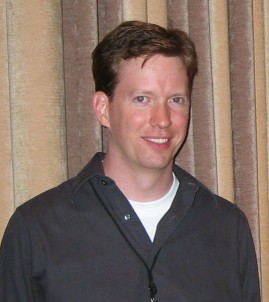Atheist philosophers on why Darwinism has got to go
Jerry Fodor and Massimo Piatelli-Palmarini, explain, Such cases of elaborate innate behavioural programs (spider webs, bee foraging as we saw above, and many more) cannot be ccounted for by means of optimizing physico-chemical or geometric factors. But they csan hardly be accounted for by gradualistic adaptation either. It’s fair to acknowledge that, although we bet that some naturalistic explanations will one day found, we have no such explanation at present. And if we insist that natural selection is the only way to try, we will never have one. – What Darwin Got Wrong (London: Profile Books, 2010), p. 91
 Bradley Monton
Bradley Monton
 The way Darwin lobbyists don’t.
The way Darwin lobbyists don’t. Always used to attack any traditional assumption, never used to attack
Always used to attack any traditional assumption, never used to attack 
